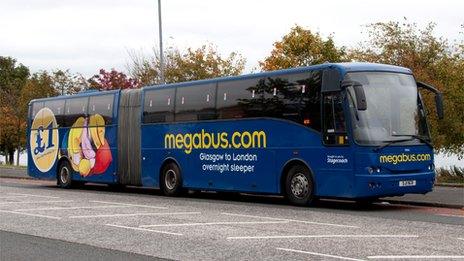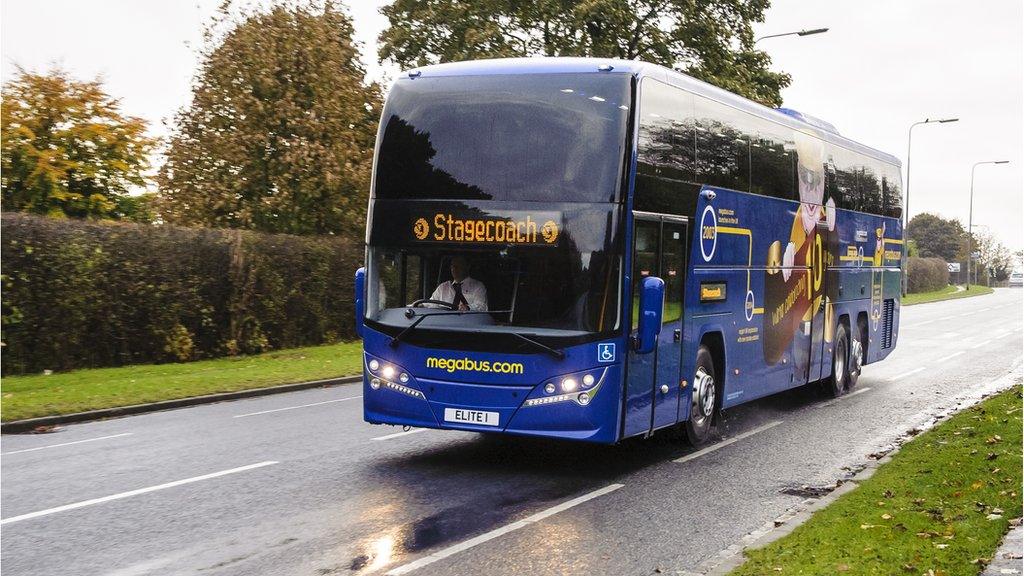Bus demand lifts Stagecoach profits and revenue
- Published

Stagecoach's megabus.com business has continued to expand in the UK, mainland Europe and North America
Transport giant Stagecoach has reported increased revenues and profits, helped by a strong performance from its UK regional bus division.
The group, which runs bus and rail services in the UK and has operations in North America, said revenues rose 4.5% to £2.9bn in the year to 30 April.
Pre-tax profits were 2% higher at £180.7m.
Profits in its regional bus arm rose 3% to £147.4m, with revenues rising by 4.8% to more than £1bn.
About 2.8 million passenger journeys are currently made on Stagecoach buses each day across the UK.
Bus orders
Perth-based Stagecoach said it placed orders worth more than £90m on new greener buses for 2014/15, with the record figure highlighting its confidence in "continuing to get people out of their cars and back on board the bus".
It added: "The market conditions are positive with a combination of a rising population, increasing road congestion, the cost of running a car and widespread concern for the natural environment providing good potential for increased bus usage across the UK."
The group's megabus.com business has continued to expand in the UK, mainland Europe and North America, where it has added new services in Florida and North and South Carolina.
Stagecoach said it believed there was "a large market for high-quality, good-value inter-city coach travel".
Rail operations
The group's rail arm saw profits fall by 17% to £34.3m, but revenues lifted 4.2% to £1.2bn. Stagecoach said the division performed in line with expectations.
The group's rail operations include South West Trains, Island Line and East Midlands Trains and it has a 49% shareholding in Virgin Rail, which runs the West Coast franchise.
Stagecoach recently failed to secure the new Thameslink, Southern and Great Northern rail franchise, but this was offset by the award of a new West Coast franchise until 2017.
The company said positive discussions were continuing with the Department for Transport with a view to agreeing franchise extensions or direct awards at South West Trains and East Midlands Trains.
Commenting on the results, chief executive Martin Griffiths said: "We have met our expectations for the year.
"Across the group, we have a strong set of locally-managed businesses which are improving services for our customers, supporting the economy and communities, and adding value for our investors."
- Published3 March 2014

- Published11 December 2013
